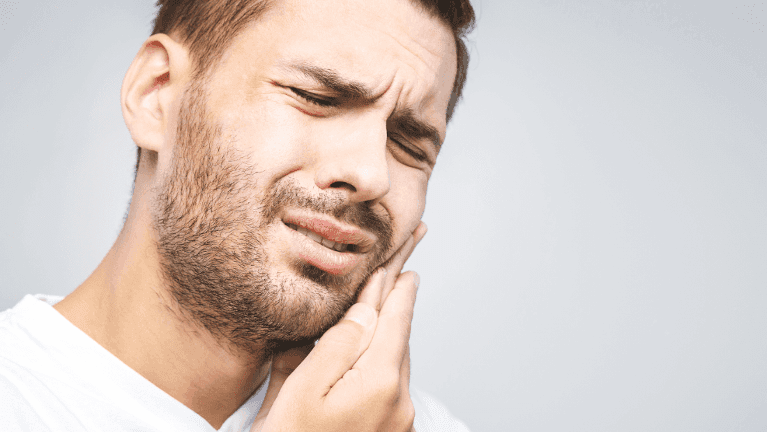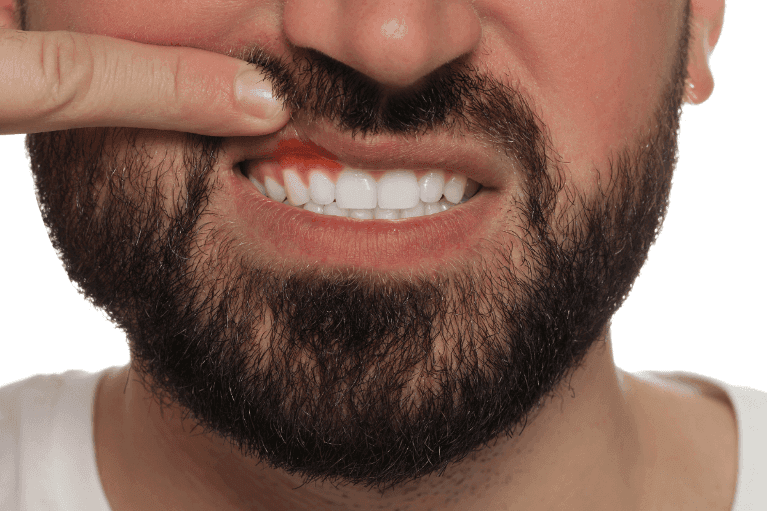
Whether you're suddenly hit with a toothache, your little one’s knocked out a tooth playing sport, or you’ve developed a throbbing abscess, dental emergencies have a way of catching us off guard.
In these unexpected moments, seeking urgent dental care becomes a priority.
The Dentists @ Belmore are here to offer support and expert emergency dental care for a range of dental emergencies. With our same-day, after-hours, and weekend emergency appointments, you can count on us to be there for you and your loved ones during those unexpected dental situations.
What’s considered a dental emergency?
A dental emergency can be a sudden or unexpected oral health issue that needs immediate attention to relieve pain, prevent complications or protect your teeth.
Some common dental emergencies include:
1. A lost tooth
Whether you've accidentally knocked out a tooth playing sport or lost it due to decay, swift dental care is crucial.
If you’ve lost a tooth, handle it gently, by the crown, not the root. It’s best to avoid scrubbing or scraping away any tissue fragments that may be attached. If you need to clean the tooth, rinse it in milk or saliva, not water. Then visit us at The Dentists @ Belmore as soon as possible for the best chance of saving your tooth.
2. Chipped, cracked, or broken tooth
A broken tooth might lead to pain, especially if the nerves are exposed or if the break has left sharp edges.
Start by giving your mouth a gentle rinse with some warm water. If there's swelling, a soothing ice pack or a cold compress held against your face might help. Head straight into our practice where we’ll do our best to restore your smile as quickly as possible.
3. Lost crown or filling
If your filling or crown has fallen out, it can leave your tooth vulnerable. You could experience pain and you might notice some extra sensitivity to hot and cold foods.
Give The Dentists @ Belmore a call as soon as possible to arrange a replacement crown or filling.
4. Toothache, abscess, or infection
When toothache strikes, rinse your mouth with warm water and place a cold compress on your cheek to reduce swelling. For over-the-counter pain relief, you can chat with a pharmacist or give our practice a call. If the pain persists, this may be an indication that you have an infection.
An abscess is a localised infection that forms at your tooth’s root or in the space between your teeth and gums. If left untreated the infection can cause damage to your surrounding tissue and teeth, and in some more serious cases, it could even become more widespread and possibly life-threatening.
This is why seeing us as soon as possible is essential if you think your toothache might be caused by an abscess or infection.
5. Bitten tongue, lip, or cheek
Little mishaps like accidentally biting the soft tissue inside your mouth can happen, especially while eating or due to a fall.
Start by gently washing the area with warm water then use a cold compress to control the bleeding and reduce swelling. If you’re unable to control your bleeding or if it lasts longer than 15 minutes, give us a call.
When to go to emergency instead
Although we can help in many dental emergencies, some situations call for urgent medical attention.
Visit your nearest hospital immediately if you’re experiencing severe swelling of your face, jaw, or throat, or if you’re struggling to open your jaw.
These symptoms could indicate a serious condition requiring immediate medical intervention.
Emergency dental care at The Dentists @ Belmore
We understand that dental emergencies can be stressful. Our experienced team are ready to manage a range of emergency situations so don’t hesitate to reach out. You can give us a call on 02 9758 1248 or book online.
Our dental practice is located at Level 1, 400 Burwood Road in Belmore, with entry via Collins Street.
*This information is general and not intended to be a substitute for medical advice. For personalised advice, consult with The Dentists @ Belmore.



